Text
Time is a concept that we are all familiar with, but have you ever stopped to wonder what time really is
Time is a concept that we are all familiar with, but have you ever stopped to wonder what time really is? Is it a fundamental aspect of reality, or is it nothing more than an illusion created by our minds? This is a question that has been debated for centuries, and there is still no definitive answer.
Many philosophers and scientists have argued that time is an illusion created by our minds. They believe that time is a subjective experience, and that it exists only in our minds. This view is based on the idea that time is relative, and that it is experienced differently by different people. For example, a minute can seem like an eternity to someone who is anxious, while a year can seem like no time at all to someone who is in love. This suggests that time is not an objective reality, but rather a perception that is shaped by our individual experiences and perspectives.
On the other hand, some scientists believe that time is a fundamental aspect of reality. They argue that time is an objective, measurable quantity that is independent of our perceptions. They point to the fact that time is an essential component of the laws of physics, and that it is used to measure the movement of objects in space. This suggests that time is a real phenomenon that exists outside of our minds.
Ultimately, the debate over the nature of time is likely to continue for many years to come. While there is no definitive answer to the question of whether time is an illusion or a fundamental aspect of reality, it is clear that it is an incredibly complex concept that has captivated the minds of thinkers for centuries.
Read the full article
1 note
·
View note
Text
missing science' of psychemechanics —a lost knowledge essential for inner growth.
The concept of psychemechanics is a lost knowledge essential for inner growth. It is the study of the inner workings of the mind and its relationship to the physical body. It is believed that this knowledge is essential for understanding the inner workings of the mind and how to achieve personal growth.
Psychemechanics is a relatively new field of research and is still in its infancy. It is a combination of psychology, neuroscience, and physics, and its focus is on the physical and psychological processes that govern the mind and how it interacts with the body. It studies the way the mind affects the body and vice versa.
Some of the areas that psychemechanics looks at include the effects of stress on the body, how the brain works, the relationship between emotions and physical health, and how the mind can be used to improve physical and mental health. It also looks at the role of the body in psychological development, and how physical and mental health can be improved through the use of various techniques.
Psychemechanics is a valuable tool for those who are looking to gain insight into their own inner workings and to make positive changes in their lives. It can help to identify areas of weakness and potential for growth, and to develop strategies for improving overall wellbeing. Unfortunately, this knowledge is often lost in the shuffle of modern life, as it is not widely taught in schools or universities.
The importance of psychemechanics for personal growth cannot be overstated. It is an essential part of understanding the inner workings of the mind and body and how to use them to achieve personal growth. Unfortunately, this knowledge has been lost in the modern world, and it is up to us to rediscover it.
Examples
-
The ability to recognize and understand the interplay between the conscious and unconscious mind: Psychemechanics is a lost knowledge that can help us to understand how our conscious and unconscious mind interact with each other and how this interaction affects our emotions, thoughts, and behavior.
-
The power of self-reflection: Psychemechanics teaches us how to use self-reflection to gain insight into our own behavior and thoughts. This skill can help us to better understand ourselves and our motivations, and can lead to inner growth.
-
The ability to identify and change limiting beliefs: Psychemechanics can help us to identify and challenge any limiting beliefs that are holding us back. By recognizing our beliefs and working to change them, we can become more empowered and open to new possibilities.
-
The art of mindful living: Psychemechanics teaches us how to live in the present moment and to be mindful of our thoughts and feelings. This can help us to become more aware of our inner world and to make better decisions.
-
The power of positive thinking: Psychemechanics encourages us to think positively and to focus our energy on creating positive outcomes. By doing this, we can become more confident and resilient, and can achieve our goals.
Read the full article
0 notes
Text
Interstitial Journaling: A Path to Self-Awareness
Interstitial journaling is a type of journaling that allows you to capture moments of your life between big events. It is a way of taking note of the little things that happen in between the big moments, such as what you ate for breakfast, the conversations you had with friends, or what you did on your lunch break. Interstitial journaling is a great way to document life’s little moments, which can be forgotten or overlooked.
Interstitial journaling is different from traditional journaling, in that it focuses on the small moments that occur in between the big life events. It is also different from diary-style journaling, which records the day-to-day events in a more chronological order. Instead, interstitial journaling is more focused on capturing the small moments that make up everyday life.
Examples of interstitial journaling include writing about the conversations you had with your coworkers, the books you read during your lunch break, or the places you visited on the weekend. It can also include writing about the things that you are grateful for, or the small moments of joy that you experienced. Interstitial journaling can also be used to reflect on the day, and to take note of how you are feeling.
Interstitial journaling is a great way to document life’s little moments, and to capture the small details that make up your day-to-day life. It is a great way to reflect on your life, and to take note of the things that bring you joy. Interstitial journaling can be a powerful tool for self-reflection, and can help you appreciate the small moments that make up your life.
Read the full article
0 notes
Text
do-evil-people-get-what-they-deserve-in-this-life-md-do-evil-people-get-what-they-deserve-in-this-life-md-Do evil people get what they deserve in this life?.md.md
The age-old question of whether evil people get what they deserve in this life has been debated for centuries. On the one hand, some people believe that evil people should be punished for their actions, and that justice should be served in this life. On the other hand, others believe that justice is ultimately served in the afterlife, and that no one can truly know the consequences of their actions in this life.
Those who believe that evil people should be punished in this life point to examples of criminals who have been brought to justice in this life. For instance, criminals who have committed heinous acts of violence have been tried and convicted in a court of law, and have faced the consequences of their actions. This shows that justice can be served in this life, and that evil people can and do get what they deserve.
On the other hand, those who believe that justice is ultimately served in the afterlife point to the fact that we cannot truly know the consequences of our actions in this life. For example, a criminal who has been convicted and sentenced to prison may be released after a certain amount of time, and may never face the full consequences of their actions. Similarly, a person who has committed a seemingly minor offense may not be punished in this life, but may still face consequences in the afterlife.
Ultimately, the answer to whether evil people get what they deserve in this life is not clear-cut. While it is true that justice can be served in this life, it is also true that we cannot know the full consequences of our actions in this life. Therefore, it is impossible to definitively answer the question of whether evil people get what they deserve in this life.
Read the full article
0 notes
Text
What Happened to the Sunken City of Cuba?
The sunken city of Cuba is a mysterious and fascinating place that has been lost to the depths of the sea for centuries. The city was once a thriving port on the Caribbean coast of the island of Cuba, but it has been submerged since the 16th century.
The exact cause of the city's sinking is unknown, but there are a few theories. One theory suggests that a powerful earthquake shook the city, causing it to sink into the sea. Another theory suggests that a tsunami caused by a nearby volcanic eruption could have been responsible for the city's disappearance.
Whatever the cause, the city of Cuba has been lost to the depths of the sea for centuries. Over time, the city has become a fascinating site for divers, as the ruins of the city still remain intact. The ruins are a reminder of the once-thriving city that was once part of the Caribbean's history.
The city of Cuba is a reminder of the power of nature and the fragility of human life. It is a reminder of how quickly things can change, and how quickly we can lose something we once held dear. The city serves as a reminder that we should always be mindful of the environment and its impact on our lives.
Read the full article
0 notes
Text
The location of Atlantis
The location of Atlantis
The location of Atlantis is a subject of debate and speculation, and it has not been definitively proven to exist. Atlantis is a legendary island first mentioned by the ancient Greek philosopher Plato in his dialogues "Timaeus" and "Critias." According to Plato's accounts, Atlantis was a powerful and advanced civilization that eventually sank into the sea due to its corruption and arrogance.
Plato's descriptions of Atlantis are vague and not geographically precise, leading to various theories about its possible locations. Some of the proposed locations for Atlantis include:
- In the Mediterranean: Some theories suggest Atlantis could be located in the Mediterranean Sea, possibly near the island of Santorini, which experienced a catastrophic volcanic eruption around 1600 BCE.
- In the Caribbean: Some have suggested that Atlantis could be found in the Caribbean, particularly in the region of the Bahamas or Cuba. Claims have been made about underwater structures in this area, but there is no conclusive evidence to support these claims.
- Near Gibraltar: Another theory places Atlantis in the vicinity of the Strait of Gibraltar, linking it to the ancient Mediterranean world.
- In the Atlantic Ocean: Some theories propose that Atlantis could be situated in the mid-Atlantic Ocean, perhaps in the Sargasso Sea or on the Mid-Atlantic Ridge.
It's important to note that there is no scientific or archaeological consensus on the existence or location of Atlantis. Many consider it to be a myth or allegorical tale rather than a historical fact. Researchers and explorers continue to investigate various underwater sites and geological features in search of evidence.
Read the full article
1 note
·
View note
Text
Why are we afraid of finding out the real truth about the Pyramids?
The lost power of the pyramids is a subject that has fascinated and intrigued researchers, historians, and enthusiasts for centuries. These ancient structures, particularly the Great Pyramids of Giza, have captured the imagination of people worldwide, leading to countless theories and speculations about their true purpose and the potential powers they may have possessed.
One theory suggests that the pyramids were built as massive energy generators. Proponents of this idea argue that the pyramids were designed to harness and manipulate natural energies, such as electromagnetic fields or cosmic forces. They believe that the precise alignment, shape, and construction of the pyramids allowed them to tap into these energies and channel them for various purposes, including healing, spiritual practices, or even advanced technological applications.
Another theory proposes that the pyramids served as powerful energy accumulators. According to this idea, the unique geometry and materials used in their construction enabled the pyramids to accumulate and store energy over time. This stored energy could have been utilized for specific rituals, ceremonies, or even as a source of power for the ancient civilization that built them.
Additionally, some theories speculate that the pyramids possessed the ability to manipulate or amplify certain frequencies or vibrations. These frequencies could have had profound effects on the human body, consciousness, or the surrounding environment. It is suggested that the pyramids were constructed in precise alignment with celestial bodies or ley lines, creating a harmonious resonance that had transformative or healing properties.
Furthermore, the pyramids' unique architectural design and positioning are believed by some to have harnessed natural energies for purposes such as weather control or agricultural enhancement. It is theorized that the pyramids acted as giant antennas or amplifiers, interacting with the Earth's electromagnetic field to influence weather patterns or enhance crop growth in the surrounding areas.
Despite the intriguing nature of these theories, it is important to approach them with a critical and scientific mindset. The true purpose and powers of the pyramids remain a subject of debate and speculation, as concrete evidence supporting these claims is lacking. Archaeological research and scientific investigations continue to shed light on the construction techniques and cultural significance of the pyramids, but the notion of their lost power remains largely speculative.
In conclusion, the lost power of the pyramids is a captivating subject that invites us to explore the potential capabilities and purposes of these ancient structures. While various theories propose that the pyramids possessed extraordinary powers, it is essential to approach these ideas with skepticism and rely on rigorous scientific inquiry to uncover the truth. The pyramids continue to inspire awe and wonder, serving as a testament to the ingenuity and achievements of ancient civilizations, but their true capabilities and powers may forever remain a mystery.
Read the full article
0 notes
Text
Out-of-this-World Origins: Unveiling Genetic Engineering by Extraterrestrials!
Welcome to the mind-blowing world of extraterrestrial genetic engineering! Prepare to embark on a cosmic journey that will unravel the secrets behind life itself. In this article, we will delve into the fascinating concept of alien genetics and how it has shaped life on Earth. Brace yourself for a thought-provoking adventure that will leave you pondering the mysteries of the universe!
===Alien Genetics: The Cosmic Blueprint of Life!
Have you ever wondered how life on Earth came into existence? The answer might lie in the concept of alien genetics. According to some theories, our genetic makeup may have been influenced by extraterrestrial beings who visited our planet in ancient times. These celestial visitors, with their advanced knowledge and technology, could have left an indelible mark on our DNA, shaping the very essence of who we are today.
The cosmic blueprint of life, hidden within our genetic code, may hold the key to our origins. Perhaps, we are not alone in the universe, and our genetic similarities with other species can be traced back to these alien interventions. This notion opens up a world of possibilities and invites us to imagine a universe where the very building blocks of life are scattered across the cosmos, waiting to be discovered.
===Unraveling the Extraterrestrial Secrets behind Genetic Engineering!
Genetic engineering has always been a subject of fascination for scientists and enthusiasts alike. But what if the secrets of this revolutionary science were actually bestowed upon us by extraterrestrial beings? Some theorists propose that the rapid advancements in genetic engineering that we have witnessed in recent times could be the result of alien influence.
Imagine a civilization from a distant star system, possessing superior knowledge and understanding of genetics. These extraterrestrials might have shared their wisdom with select individuals on Earth, igniting the spark of genetic engineering that has since revolutionized our world. The complex patterns and intricacies found in our DNA could be a testament to this otherworldly guidance, guiding us towards a future where we harness the power to shape life itself.
As we conclude our journey through the realm of extraterrestrial genetic engineering, we are left in awe of the vast possibilities that lie beyond our comprehension. The idea that our genetic makeup could be intertwined with celestial origins is a concept that sparks the imagination and invites us to explore new frontiers. While this theory remains speculative, it serves as a reminder that the mysteries of the universe are waiting to be unraveled. So, let your mind wander and dream of a cosmos where the secrets of life are hidden among the stars!
Read the full article
0 notes
Text
Unlocking an Ancient Riddle: Meet the Enigmatic Slave Species!
Unlocking an Ancient Riddle: Meet the Enigmatic Slave Species! ===
Have you ever wondered about the origins of human slavery? It's a mind-boggling puzzle that has left historians and scholars scratching their heads for centuries. The concept of one human being owning another seems inconceivable, yet it has played a significant role in shaping societies throughout history. In this article, we embark on a journey to delve into the enigma of ancient slavery and uncover the secrets behind this puzzling phenomenon.
The Mysterious Origins of Human Slavery: A Puzzle Unsolved!
As we venture back in time, the origins of human slavery remain shrouded in mystery. It is believed to have emerged in various civilizations across the globe, from ancient Mesopotamia to ancient Egypt and beyond. The exact reasons that led to the emergence of slavery are still a subject of debate among historians. Some argue that it was born out of economic necessity, while others contend that it was a result of conquest and dominance. Regardless of its origins, one fact remains clear: ancient slavery left an indelible mark on the course of human history.
Historical records show that ancient slaves were drawn from diverse backgrounds, including prisoners of war, debtors, and even individuals who were born into slavery. They were considered the property of their owners, with little to no rights or freedom. Slavery was deeply ingrained in these ancient societies, and slaves were often subjected to brutal treatment, forced labor, and dehumanization. Despite the cruelty they endured, slaves played a significant role in shaping the economies and cultures of their time.
Delve into History's Enigma: Unraveling the Secrets of Ancient Slavery!
Unraveling the secrets of ancient slavery is akin to solving a complex puzzle. It requires piecing together fragments of historical evidence, deciphering ancient texts, and exploring archaeological discoveries. One of the most intriguing aspects is the existence of slave species, such as the helots in ancient Sparta or the thralls in Viking societies. These slave species were distinct from other slaves, often hailing from conquered territories or foreign lands. Uncovering the reasons behind the peculiar treatment of these slave species adds another layer of complexity to the puzzle of ancient slavery.
Digging deeper into the enigma, we find evidence of significant variations in the treatment and roles of slaves across different civilizations. In some societies, slaves were used for agricultural labor, while in others, they served as household attendants, concubines, or even soldiers. The complexities of the institution of slavery are further highlighted by stories of extraordinary individuals who managed to rise above their status, such as the famed philosopher and slave, Epictetus. Each piece of the puzzle brings us closer to grasping the multifaceted nature of ancient slavery.
Unlocking the mysteries of ancient slavery is an ongoing journey that sheds light on the complexities of our past. Though the origins of human slavery remain elusive, exploring the lives of enslaved individuals and the societies they inhabited allows us to better understand the dynamics that shaped ancient civilizations. As we uncover more fragments of this ancient riddle, we continue to uncover the resilience and strength of those who endured the horrors of slavery. Let us remember their stories and ensure that the lessons of the past guide us towards a future free from oppression and inequality.
Read the full article
0 notes
Text
The lost city of Atlantis
The lost city of Atlantis has captivated the imagination of people for centuries. While its existence remains a subject of debate and speculation, numerous theories have emerged in an attempt to understand this mythical city.
One popular theory suggests that Atlantis was a real place, located somewhere in the Atlantic Ocean. According to the ancient philosopher Plato, who first mentioned Atlantis in his dialogues, it was a powerful and advanced civilization that existed around 9,000 years before his time. The city was said to be a utopia, boasting impressive architecture, advanced technology, and a prosperous society.
Another theory proposes that Atlantis was not a physical city but rather an allegorical tale created by Plato to convey philosophical or moral lessons. Some argue that Atlantis represents Plato's ideal society, while others suggest it serves as a cautionary tale about the dangers of hubris and the inevitable downfall of great civilizations.
Other theories propose that Atlantis may have been located in different parts of the world. Some researchers believe it could have been situated in the Mediterranean Sea, near the island of Santorini, which experienced a massive volcanic eruption around the same time Plato mentioned Atlantis. Others speculate that Atlantis might have been in the Caribbean, Antarctica, or even beneath the ocean floor.
Additionally, some theories propose that Atlantis was not a physical city at all but rather an ancient extraterrestrial civilization. Supporters of this idea argue that advanced beings from another planet or dimension once inhabited Earth and left behind remnants of their existence, which were later mythologized as Atlantis.
Despite the numerous theories, the true nature and location of Atlantis remain elusive. The lack of concrete evidence and the passage of time have shrouded this mythical city in mystery. While archaeological and scientific advancements continue to uncover new insights into our past, the quest to uncover the truth behind Atlantis remains an ongoing pursuit that fuels our collective imagination.
Read the full article
0 notes
Text
Your mind is a storage room. Do you know what's inside?
Do you ever feel like your mind is a storage room, filled with random items and memories that you can’t quite make sense of? It’s like a jumbled jigsaw puzzle, but you can’t quite figure out how the pieces fit together. Well, don’t worry, because you’re not alone! Everyone has a storage room in their minds, and it’s filled with all sorts of weird and wonderful things.
So, what’s inside your mind storage room? Well, it could be anything from a childhood memory to a list of all the places you want to visit. It could even be a collection of random facts that you’ve picked up along the way. Whatever it is, it’s all part of the amazing journey of life.
But, don’t forget to take a break from time to time and explore the contents of your mind storage room. You never know what you might find! Maybe a forgotten dream or a new idea that you can use to make your life even better. Plus, it’s a great way to relax and take a break from the hustle and bustle of everyday life.
So, don’t be afraid to open up your mind storage room and see what’s inside. You never know what you might find!
Read the full article
0 notes
Text
Slave Species of the Gods- bad title it covers so much more than you would expect
Have you ever wondered about the origins of humanity? How did we come to be, and are we truly alone in the universe? In the book "Slave Species of the Gods," a journey is embarked upon that uncovers fascinating and enigmatic aspects of our ancient past. Prepare yourself for a joyous exploration that goes beyond what you would expect from the title alone.
Unveiling the Enigmatic Slave Species of the Gods
As the title suggests, "Slave Species of the Gods" delves into the mysteries surrounding humans and their possible relationship with celestial beings. The book presents a captivating narrative that challenges conventional beliefs and invites readers to question the true nature of our existence. Through meticulous research and thought-provoking analysis, it explores the concept that humans may have been created as a subservient species by advanced extraterrestrial civilizations.
A Fascinating Journey into Ancient Mythologies
Embarking on this captivating journey, we find ourselves immersed in the rich tapestry of ancient mythologies. Drawing upon myths and legends from various cultures around the world, the book brilliantly weaves together a narrative that points towards a shared origin of humanity. From the Sumerian cuneiform tablets to the Egyptian Book of the Dead, these ancient texts provide tantalizing hints about the existence of celestial beings who shaped the destiny of our species.
Unraveling the Secrets of Our Celestial Ancestors
With each turn of the page, "Slave Species of the Gods" unveils the secrets of our celestial ancestors. It explores the possibility that these advanced beings not only intervened in human history but also played a significant role in our evolution. From genetic engineering to advanced technological knowledge, the book invites us to contemplate the extraordinary influence these beings may have had on shaping our very existence.
From Ancient Scriptures to Modern Speculations
While ancient scriptures provide the foundation for this exploration, the book delves beyond the realms of ancient myths. It draws upon modern speculations, scientific discoveries, and alternative theories to paint a comprehensive picture of our cosmic origins. From the theories of ancient astronaut researchers to the latest breakthroughs in genetic science, "Slave Species of the Gods" presents a compelling case for humanity's connection to celestial beings.
The Remarkable History of Our Divine Lineage
One of the book's most captivating aspects is its detailed exploration of the remarkable history of our divine lineage. It delves into the idea that humans were not only created as a subservient species but also as potential vessels for divine consciousness. This thought-provoking concept challenges the traditional understanding of our purpose on Earth and ignites a sense of wonder about the true extent of our cosmic heritage.
Unleashing the Joyful Truth of Our Cosmic Origins
In its final chapters, "Slave Species of the Gods" unleashes a joyful truth - the realization that we are not merely slaves but inheritors of a cosmic legacy. By embracing this perspective, we can find a renewed sense of purpose and meaning in our existence. The book encourages us to embrace our divine potential and explore the infinite possibilities that lie within us.
"Slave Species of the Gods" is a book that takes its readers on an extraordinary journey through ancient mythologies, unraveling the secrets of our celestial ancestors. Beyond its intriguing title, this joyful exploration unveils a remarkable history, challenges conventional beliefs, and ignites a sense of wonder about our cosmic origins. So, open your mind and embark on this captivating adventure to uncover the enigmatic truths that lie within our ancient past.
Read the full article
0 notes
Text
The hidden power of doodling
Doodling has long been seen as a mindless activity, but recent research has shown that it can actually have a positive impact on creativity, focus, and memory. Doodling is a form of visual thinking that can help people stay focused and engaged in conversations, as well as help them remember details better. It can also help people process information more effectively and come up with creative solutions to problems.
Studies have found that doodling can help people stay focused on a task for longer periods of time. This is because it can provide a break from the task at hand, allowing the brain to relax and refocus. Additionally, doodling can help people stay focused on conversations and remember details better. It does this by providing a visual representation of the conversation, which can help people recall what was said more easily.
Furthermore, doodling can help people process information more effectively. This is because it allows people to visually organize their thoughts and ideas, which can help them come up with creative solutions to problems. Additionally, doodling can help people think more abstractly and make connections between ideas that they may not have seen before.
Doodling is often seen as a mindless activity, but research has shown that it can actually have a positive impact on creativity, focus, and memory. Doodling can help people stay focused and engaged in conversations, as well as help them remember details better. It can also help people process information more effectively and come up with creative solutions to problems. Therefore, doodling is a powerful tool that can help people think more creatively and effectively.
So if you’re feeling overwhelmed, take a few minutes to doodle and you may be surprised at how much better you feel.
Read the full article
0 notes
Text
Have you ever experienced the marvels of lucid dreaming
Have you ever experienced the marvels of lucid dreaming? It's an awe-inspiring journey where you become consciously aware that you're dreaming and can even shape the dream to your liking! 😮✨ Ready to embark on this mind-bending adventure tonight? Follow along! #luciddreaming
First, make sure you're in a calm and comfortable setting. Dim the lights, play some soothing music, and unwind. Relaxation is key. 🧘♀️🎶
Next, establish a dream routine. Before going to bed, repeat a simple phrase like "I will remember I'm dreaming tonight" or “Tonight, I will become lucid in my dreams." Planting this intention activates your inner awareness. 💭💫
As you drift off into dreamland, pay attention for oddities or surreal moments that could be dream cues. 🚩 Question your reality! Ask yourself, "Am I dreaming?" and do a reality check. Pinch your nose and try to breathe through it. If you can, voila! You're dreaming! 🌬️👃
Now that you're lucid, let your imagination run wild! Fly through the sky, visit exotic locations, or summon your favorite fictional characters. The possibilities are endless. 🌈🌍
But remember, it's crucial to stabilize your dream. Engage your senses by touching surfaces or rubbing your hands together. This enhances your clarity and prevents the dream from fading away. ✋🌠
Maintaining lucidity can be a challenge, so if you feel yourself slipping back into a regular dream, spin in place or focus on a specific object. 🌪️🔍 This helps you stay engaged in the lucid dream state.
When you wake up, don't forget to document your extraordinary experience! Journaling your dreams increases dream recall and allows you to reflect on your lucid adventures. 📔✍️
Remember, lucid dreaming takes practice, so be patient if you don't succeed immediately. With time and effort, you'll unlock fascinating realms of limitless imagination. Sweet dreams and happy lucid exploring! 🌌🛏️ #dreams #adventure #luciddreaming
Have you ever tried lucid dreaming? It's an incredible experience where you become aware that you're dreaming and can even control the dream! Give it a try tonight and see what kind of amazing adventures you can have! #luciddreaming #dreams #adventure
Read the full article
0 notes
Text
Slave Species of the Gods
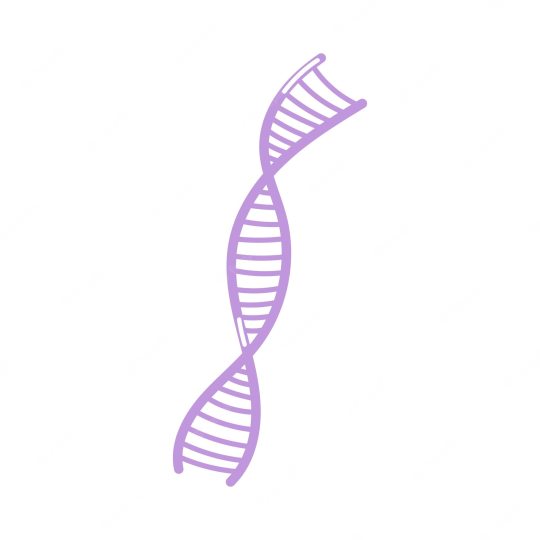
an Old Curator Special Report
💫 Are We the "Slave Species of the Gods"? Unraveling the Mysteries
Welcome to a journey into the unknown.
An expedition into an enigma that has intrigued humanity for centuries. The provocative and riveting narrative of the "Slave Species of the Gods".
Sounds pretty dramatic, doesn't it?
This story is no ordinary tale, but one that dances on the edge of reality and myth, science and faith. It's a tale woven with threads of ancient texts, archaeological discoveries, and extraterrestrial theories. A tale that questions the very essence of our existence.
Are we, humans, truly the masters of our destiny? Or are we mere pawns in an intergalactic game played by otherworldly entities we've termed 'Gods'?
This topic has been a hotbed of controversy, attracting both fervent believers and skeptical critics. It's a debate that has raged within the hallowed halls of science and in the mystical realms of spiritual circles.
And in this newsletter, we dare delve deeper into this enigma.
We'll explore ancient astronaut theories and genetic manipulation hypotheses. We'll decipher cryptic legends and scrutinize archaeological evidence. We'll question mainstream narratives and dare to look beyond the veil of accepted history.
So fasten your seatbelts, dear reader. It's time to embark on a mind-bending exploration into the "Slave Species of the Gods".
👥 Decoding the Divine: Who Are These 'Gods'?
Who, indeed, are these entities we refer to as 'Gods'?
The term 'Gods' itself is shrouded in ambiguity and mystery. Spanning across cultures, epochs, and civilizations, interpretations of these divine beings have been as varied as they are numerous.

From omnipotent, ethereal entities in monotheistic beliefs to pantheons of gods with human-like flaws and virtues in polytheistic cultures, the concept of 'Gods' shifts like a kaleidoscope through the lens of different perspectives.
Ancient texts, revered by civilizations of yore, paint vivid pictures of these 'Gods'. They were not just distant, divine spectators but active participants in human evolution. Creators, protectors, educators, destroyers - their roles were as multifaceted as their personalities.
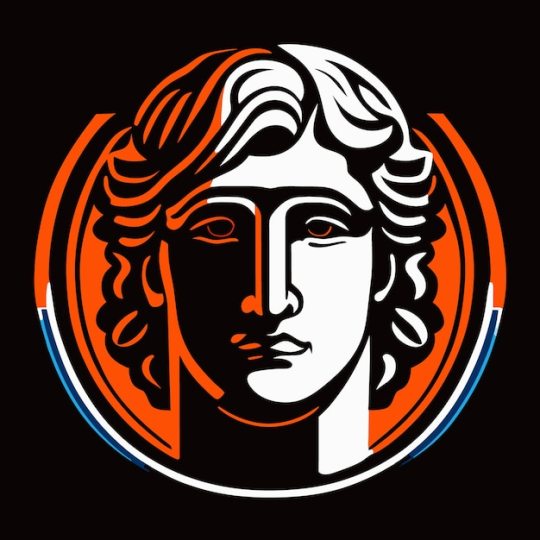
Ancient Texts
Yet, beneath the reverence and wonder, the subject of 'Gods' isn't without its controversies and debates.
Who were they, really? Literal divine beings or metaphorical representations? Or perhaps, as some daring theories suggest, extraterrestrial visitors misinterpreted as 'Gods' due to their advanced technology?
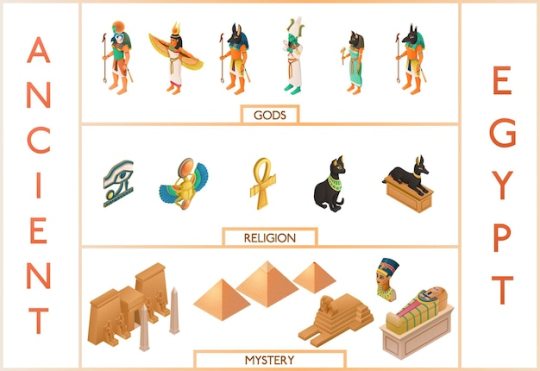
Gods Debate
As we journey through this newsletter, we'll delve deeper into these riveting questions. And perhaps, by the end, we'll have a fresher, more nuanced perspective on the 'Gods' of our ancient past.
🌍 Earth: The Divine Sandbox
As we delve deeper into the intriguing mythos of the 'Gods', a myriad of theories arise about the pivotal role our home planet supposedly played in their grand scheme. From being an experimental lab to the birthplace of a new species, Earth's narrative transcends the mundane in these theories.

Earth from Space
A popular belief suggests that these 'Gods' utilized Earth as their cosmic laboratory. Here, they purportedly engaged in an array of activities, from mining precious resources to manipulating the DNA of existing lifeforms.

Gods experimenting
Mankind, as per these theories, was not merely a byproduct of evolution, but rather a designed species. Some even propose that humans were engineered to serve as labor for these divine beings.
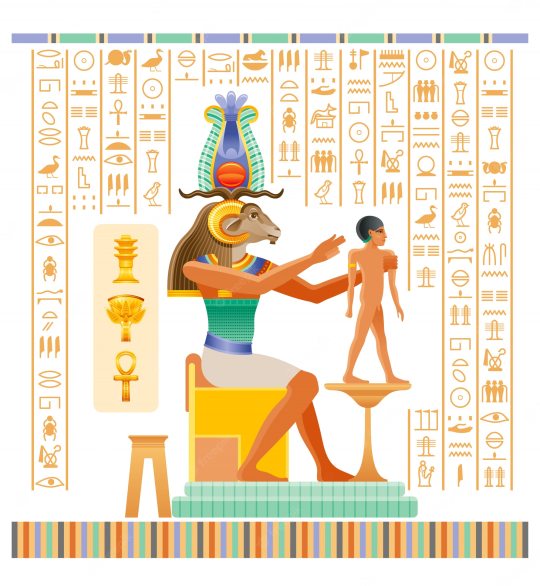
Human creation
This idea, as controversial as it may sound, does find potential backing in various archeological and historical pieces of evidence. Ancient structures like Egypt's Great Pyramids, Peru's Machu Picchu, or England's Stonehenge often defy conventional explanations of their construction.

Great Pyramid
These grand structures, built with a precision and scale unimaginable for the time, lead many to the tantalizing prospect of divine intervention.
The presence of these 'Gods' on Earth, as remote as it may seem, is a concept embedded in countless ancient cultures and civilizations. Perhaps, it's time we take a closer look.
👽 "From the Heavens They Came: Exploring the Ancient Astronaut Theory"
Ever been gripped by midnight musings of cosmic voyagers from galaxies far, far away? If yes, then you're in for a treat. Let's dive into the fascinating realm of the Ancient Astronaut Theory and its intriguing propositions.
The Ancient Astronaut Theory, as intriguing as it sounds, is a concept that has sent shockwaves through the corridors of conventional historical understanding.
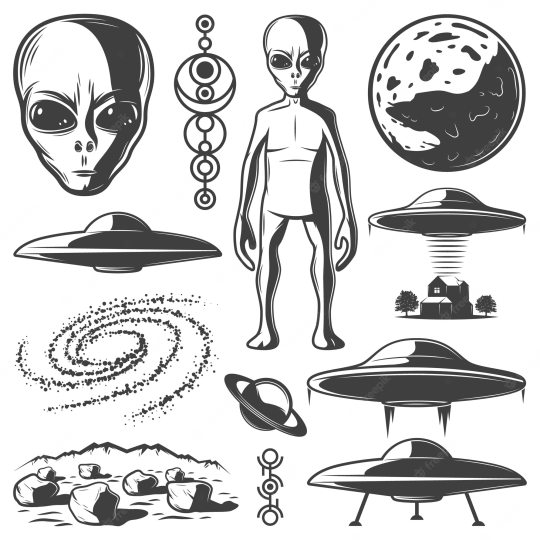
Ancient Astronaut Theory
This theory posits that extraterrestrial beings, referred to as 'Ancient Astronauts', visited our blue planet eons ago. But that’s not all; it further suggests that these celestial visitors significantly influenced human civilizations in their nascent stages.
And the 'Gods' that our ancestors worshiped?
According to this theory, they were not mythical beings, but real, flesh-and-blood extraterrestrials with advanced technology that was perceived as divine power by our ancestors.

Extraterrestrial gods
Sounds like a sci-fi blockbuster plot, doesn't it?
But hold on to your skepticism. This theory is not without its fair share of compelling arguments and intriguing evidences.
Take, for instance, the unexplainably advanced architectural marvels of ancient civilizations, like the Pyramids of Egypt or the Stonehenge.
Our ancestors, with their limited technology, supposedly built these? Or, the curious depictions of 'Gods' in ancient art, often shown with what seem to be high-tech devices, helmets or even spacecrafts.
These are just snippets of the vast body of evidences that proponents of this theory point to.
So, the next time you look up at the night sky, remember: we might just be living in the remnants of an ancient, cosmic crossroads.
Extraterrestrial Gods, Ancient Astronauts? The evidence is out there, and the debate is far from over.
🧬 The Genesis Code: Gods as Genetic Engineers

Ancient DNA helix
Sliding down the rabbit hole of the 'Slave Species of the Gods', we have come across a fascinating theory.
A theory that could potentially redefine our understanding of divinity and creation.
The theory of Genetic Manipulation.
This theory postulates that these so-called ‘Gods’ were not just otherworldly visitors but were also pioneers in genetic alteration. They were scientists working on the biggest canvas possible - life itself.
Researchers who support this theory suggest that these Gods had a purpose to their experiments.
They needed workers.
Beings capable enough to understand and execute orders but submissive enough not to question their masters. Sounds like a familiar scenario? Only this time, it wasn't human masters but Gods at the helm.
Thus, they claim, was born the 'Slave Species', through a cocktail of divine and native DNA.
Peculiar? Absolutely.
Improbable? Not necessarily.

DNA double helix
There are several scientific observations that lend a shred of credibility to this wild hypothesis.
Take the human genome itself, for example - a marvel of biological computing. The ENCODE project conducted by scientists globally revealed that a vast portion of our DNA, previously labeled as 'junk DNA', is in fact functional and vital.
Could this 'extra' DNA be the legacy of our supposed divine creators?
Only time, and more research, will tell.
Next time you marvel at a feat of human accomplishment, remember - we might all be part of an experiment conducted by ancient extraterrestrial geneticists.
A chilling thought, isn't it?
📚 Old Scripts, New Insights: Unraveling Ancient Texts and Legends
Over the centuries, numerous texts and legends have emerged, painting fascinating pictures of 'Gods' and what are dubbed as 'Slave Species'.
A notable one is the Sumerian texts.
These ancient tablets, originating in Mesopotamia, often speak of 'Anunnaki', believed to be 'Gods'. Intriguingly, they also mention 'lu-lu', a term some experts interpret as a reference to a primitive worker or 'Slave Species'.
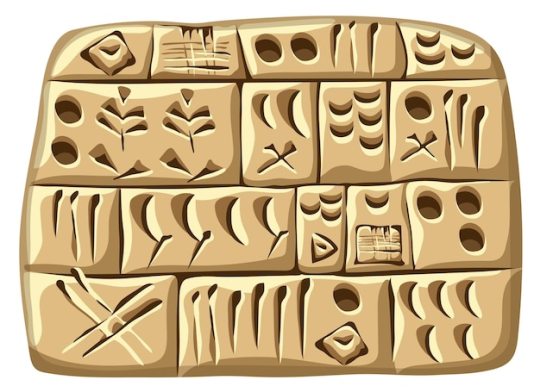
Sumerian+tablets
Similarly, Hindu scriptures like the Vedas and the Puranas describe 'Devas' and 'Asuras'. Researchers often draw parallels between these entities and the 'Gods' and 'Slave Species' narrative.
But what do these interpretations really mean?
Researchers dive deep into these symbolic narratives, trying to decipher the cryptic language. They use linguistic, archaeological, and even astronomical tools to piece together a narrative that could help uncover humanity's hidden past.
The interpretations, however, are not without their controversies. While some scholars argue these texts are descriptions of real events masked in allegory, others contend they are purely mythological.
Regardless of the debates, these interpretations have certainly shaken our understanding of human history.

Historical+interpretation
They pose thought-provoking questions:
Could our ancestors have been more advanced than we assume? Is our history intertwined with beings from other worlds?
Answers remain elusive. However, the exploration of these ancient texts and legends continues to offer intriguing insights, each one bringing us closer to understanding our own story on this blue planet.
🧐 Mythbusters: Dissecting the 'Slave Species of the Gods' Theory
When it comes to theories as captivating and controversial as the 'Slave Species of the Gods', it's no surprise that a bunch of misconceptions find their way into the mix.
Let's address a few of these myths head-on, shall we?
Myth 1: The theory is purely fiction, with no scientific basis.
While it's true that the theory ventures into the realm of the speculative, it's far from being baseless. There have been numerous archaeological discoveries and historical interpretations that support some aspects of this theory.
Myth 2: Supporters of the theory reject all conventional explanations of human evolution.
Not exactly. Most proponents of the 'Slave Species' theory appreciate established scientific theories. But they also believe in the possibility of our understanding being incomplete. They argue for an open-minded exploration of alternative theories that could add another layer to our understanding of human history.
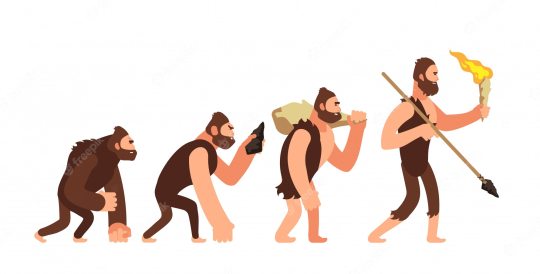
Alternative theories
Myth 3: The theory is based on wild interpretations of ancient texts and symbols.
Interpretation is indeed a key aspect of this theory. But calling it 'wild' is a bit of a stretch. Many of these interpretations are backed by expert linguists and historians, and they often provide fascinating new perspectives on ancient texts and symbols.
In the end, whether you subscribe to this theory or not, one thing is clear: the 'Slave Species of the Gods' theory stimulates thought, encourages questioning, and invites us to look at our history from a fresh perspective.
So, keep an open mind. Let's not be afraid to dive into the depths of controversial theories and come out with a more enriched understanding of our past...and possibly, our future.
📣 The Final Word: Inviting Your Thoughts on the 'Slave Species' Conundrum
Well, friends, we've certainly journeyed through a maze of theories, interpretations, and ancient enigmas today.
From the mysterious 'Gods' and their potential role in shaping our Earth, through the labyrinth of the Ancient Astronaut Theory, to the controversial notion of genetic manipulation birthing a slave species. And let's not forget our delve into the myriad ancient texts and legends that have kept scholars guessing for ages.

Ancient Texts and Legends
Remember, these theories and ideas are all pieces of a puzzle that we're trying to solve together.
And the reality? Well, it could be all these theories combined, or none of them at all. That's the beauty—we're still searching for the truth.
We encourage you to think critically about these ideas. Question the theories, scrutinize the evidence, and debate the possibilities. Formulate your own opinions because, in the end, your thoughts are what truly matter.

Think Critically
We'd love to hear your views on the 'Slave Species of the Gods' theory. Join us on our social media platforms to engage in a healthy, open-minded debate about this fascinating topic.
Who knows? Your insight might be the missing piece to this age-old puzzle. We can't wait to hear from you.
Until our next exploration, keep wondering, keep questioning. Your curiosity is our greatest asset.
Check out Slave Species of the Gods
Read the full article
0 notes
Text
Age is Just a Number: Empowering Minds with Late Language Learning
Age is Just a Number: Empowering Minds with Late Language Learning
Language has long been considered a skill best acquired at a young age. However, the notion that learning a new language becomes increasingly difficult as we grow older is simply a fallacy. In reality, age is just a number when it comes to language learning. Late language learning can be a powerful tool for empowering minds and breaking down barriers. So, let's delve into the incredible benefits of embracing language learning at any age!
The Power of Late Language Learning: Age is Just a Number!
It's never too late to embark on a language learning journey. In fact, there are many advantages to learning a new language as an adult. Research has shown that adults have a better grasp of grammar and abstract concepts, which can facilitate faster language acquisition. Additionally, adults tend to be more motivated, dedicated, and have clear goals in mind when learning a language. Their life experience and knowledge also provide a rich foundation for connecting with new cultures and perspectives.
Moreover, late language learning fosters neuroplasticity, the brain's ability to adapt and reorganize itself. Contrary to the belief that our brains become less flexible as we age, studies have shown that language learning can actually sharpen cognitive skills and improve memory and problem-solving abilities. It's like giving your brain a vibrant workout, keeping it agile and engaged.
Late language learning also brings a sense of accomplishment and personal growth. Overcoming the challenges of acquiring a new language later in life not only boosts confidence but also expands horizons. It opens doors to diverse opportunities, such as connecting with people from different backgrounds, exploring new career paths, or even immersing oneself in travel experiences with a deeper understanding of local cultures. Age truly becomes irrelevant when the world becomes your classroom!
Breaking Barriers: Empowering Minds with Late Language Learning
Language is the key that unlocks doors to communication and connection. Through late language learning, we can break down barriers and empower our minds to engage with the world in meaningful ways. By embracing new languages, we foster empathy and understanding, enabling us to connect with people from different walks of life. We become global citizens, bridging gaps and promoting cultural exchange.
Late language learning also helps to break down stereotypes and promote inclusivity. It challenges the notion that only the young can learn new skills effectively and demonstrates that anyone can acquire a second, third, or even fourth language. By defying age-related limitations, we inspire others to challenge their own preconceptions and embark on their own language learning journeys.
So, let's celebrate the power of late language learning. Whether it's fulfilling a lifelong dream, expanding career prospects, or simply indulging in the joy of exploring a different culture, learning a new language later in life is an empowering endeavor. Remember, age is just a number, and our minds are limitless when it comes to the wonders of language learning!
Embrace the Power of Late Language Learning and Empower Your Mind!
In a world that often emphasizes the importance of youth, let us recognize the incredible potential of late language learning. It is an opportunity to challenge ourselves, grow personally, and connect with others on a deeper level. Age should never deter us from pursuing our dreams and expanding our horizons. So, let's embrace the joy of language learning, regardless of our age, and empower our minds to thrive in an ever-changing world. After all, age is truly just a number when it comes to the limitless wonders of language acquisition!
Read the full article
0 notes
Text
The first ever 'alien' object found on Earth
The first ever 'alien' object found on Earth has been discovered by Harvard physicist Dr. Abraham Loeb and his team. The object, consisting of hundreds of tiny fragments, was found at the bottom of the Pacific Ocean and is believed to be from outside our solar system.
This discovery is groundbreaking and has the potential to revolutionize our understanding of the universe. The fragments, which are believed to be from an interstellar comet, are made up of a mix of organic and inorganic materials. This suggests that they could have been formed in an environment outside of our solar system.
The fragments are believed to be the remains of a comet that was broken apart by the gravitational pull of our Sun. The fact that the fragments are made up of such a mix of materials suggests that they could have been formed in an environment outside of our solar system.
The discovery of these fragments could be a major step forward in our understanding of the universe. It could help us to better understand how planets and stars form, and how interstellar objects interact with each other. It could also help us to better understand the composition of interstellar objects, and how they may have been formed.
The discovery of the fragments is a major breakthrough, and could help us to gain a better understanding of the universe. It is also a reminder of the importance of exploration and research, and the potential for us to make groundbreaking discoveries.
Read the full article
0 notes